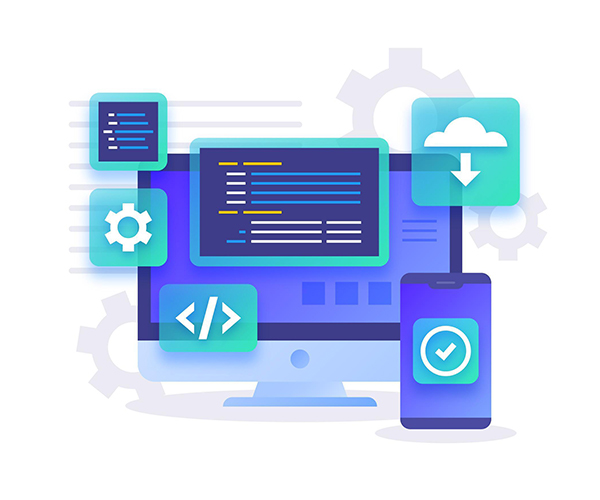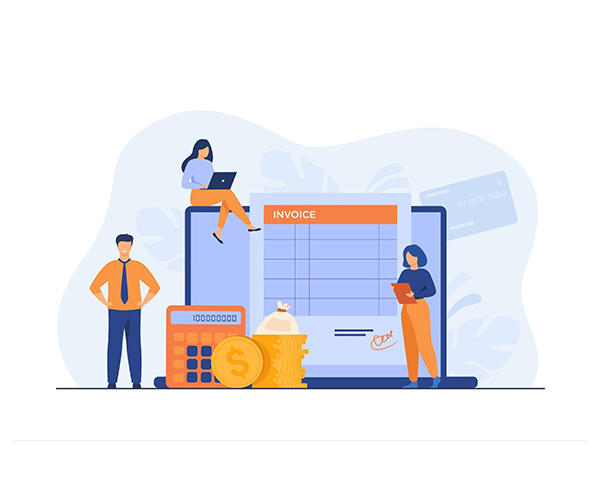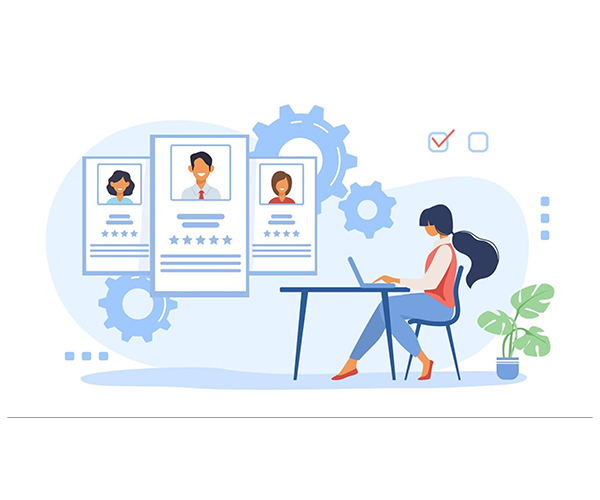
Secrets To Developing Amazing Cloud-Native Applications with Microsoft Azure
January 13, 2022
The Secret to Creating High-Quality Custom Apps
January 14, 2022
The complete guide to hiring for cloud roles and evaluation criteria you must use for each.

The internet has fundamentally changed the way we do things, from shopping to paying our bills. Now it is changing the way we hire. Companies are using more and more cloud solutions for IT, HR, Finance, accounting, and that has given rise to a new phenomenon: the cloud engineer. Organizations must take great care of their hiring decisions because Cloud engineers drive digitization and efficiency inside an organization. Cloud roles are becoming increasingly critical in organizations of all sizes. Hiring great cloud engineers who are a good fit for your organization is no mean feat, given the high industry demand for such roles. Here’s a complete guide to hiring for cloud roles.
Introduction to cloud roles

As per a survey by Indeed, the share of cloud engineering jobs per million increased by an astounding 42% over the past three years. A 2020 IDG report revealed that over 500 IT executives revealed that cloud accounted for almost one-third of their IT expenditure. The primary responsibilities for cloud engineers include planning and implementing policies for cloud usage, building and maintaining cloud infrastructure. They can have more specialized roles as well. Some of them are:
- Cloud Solutions architect: Designing the core cloud infrastructure and application architecture is an integral part of their job. They are also responsible for the overall cloud strategy of an organization. This includes essential tasks such as cloud adoption and/or migration and deploying cost-saving measures.
- Cloud Developer: A cloud developer is responsible for the development of applications. They also overlook the deployment and maintenance of a cloud-based application.
- Systems Operations Engineer: They are responsible for managing and monitoring a cloud application. They are also tasked with controlling the flow of data both to and from a cloud service provider.
The day to day job of a Cloud Microservice Architecture Engineer
A cloud engineering role may vary a lot depending on the kind of company they work for. They are responsible for everything from managing cloud services such as compute, storage, and applications to designing and developing new applications and cloud service architecture. Apart from that, they have many role-specific responsibilities, including creating load balancers, troubleshooting network-related issues for a cloud network engineer or monitoring instances, and optimizing compute billing for a cloud compute engineer. Apart from that, a cloud engineer is responsible for creating and updating the cloud strategy and documentation for the organization. They are also responsible for the automation of repetitive tasks and access management.
Hiring for cloud roles

Hiring for cloud roles is difficult because the roles are complex, and the job requirements are constantly changing. It’s essential to identify potential candidates quickly, which means paying attention to how quickly they respond to emails and questions. A hiring manager should be prepared to meet with several people during the hiring process and pay adequate attention to evaluating their soft and hard skills. Even though the needs of every organization are different, here are some common skills to watch out for when looking to hire for cloud roles:
- Exceptional Programming ability: Cloud engineers must be proficient at general programming with a strong background in programming languages like C++, Java, Python, Ruby, Go, PHP, and .NET.
- Networking: Cloud engineers must have a good understanding of core networking concepts and network management functions.
- DevOps: Adequate knowledge of DevOps and CI/CD principles can prove to be beneficial. A DevOps certification is a sought-after skill by most employers.
- Containerization: Proficiency in Containerization is a must-have for any excellent cloud engineer. Familiarity with tools such as docker and Kubernetes is highly appreciated.
- Linux OS: Familiarity with Linux and navigating through the OS using a CLI is a vital skill to have. Cloud engineers must be familiar with the architecture, deployment and maintenance of a Linux server.
- Database: Cloud engineers must be skillful in cloud database management skills and knowledge of commonly-used databases like MySQL, Apache Hadoop, and RDS.
- Virtualization: Having a core understanding of VMs and experience scaling VMs is a desirable skill since it is a great help when migrating to the cloud. Familiarity with EC2 and Lambda from AWS, Google cloud compute, and Azure virtual machines is icing on the cake.
- Cloud Service Providers: All cloud service providers offer a wide range of cloud services, and familiarity with each of them can help choose the best and costeffective providers for your use case. It can also be a great help when opting to go for a Multicloud solution.
Evaluation criteria you must use for each

SOURCE: MICROSOFT CLOUD PRACTICE DEVELOPMENT STUDY
It would help if you used specific evaluation criteria for each role that caters to your organization’s needs. Cloud computing needs are a representation of computational services your core business needs, and you must evaluate them carefully. The hiring must take the cloud strategy of your organization into account. Even before getting them into the door, the first step is to perform an adequate assessment of their core abilities and find the gaps in critical skills required for the job. It would help if you considered critical factors such as experience and their work history. Cloud certifications and formal education cannot be discounted. Given that Cloud computing is evolving fast, you must also look at keeping up with the latest industry trends. Performing an extensive interview to test their problem-solving skills can effectively filter candidates who cannot think for themselves. The most important thing to consider is that a lack of experience doesn’t always translate into a lousy candidate. Each candidate must be evaluated while keeping that in mind.
How Atidan Technologies can help hire extraordinary Cloud engineers for your business

Atidan has access to the largest talent pool in the world with a proven track record of customer satisfaction. Atidan provides result-oriented staffing services so that you can focus on your running business. We have highly experienced recruiters with a strong technical background across North America, the EU, and APAC time zones. Atidan boasts of high retention rates for all vetted candidates. With over eight years of experience in staffing and global offices in the USA, UK, India, SEA, and success stories across various industries, Atidan can manage all your hiring needs. Finding DevOps engineers that are a good fit for your organization can be made easy with Atidan.

